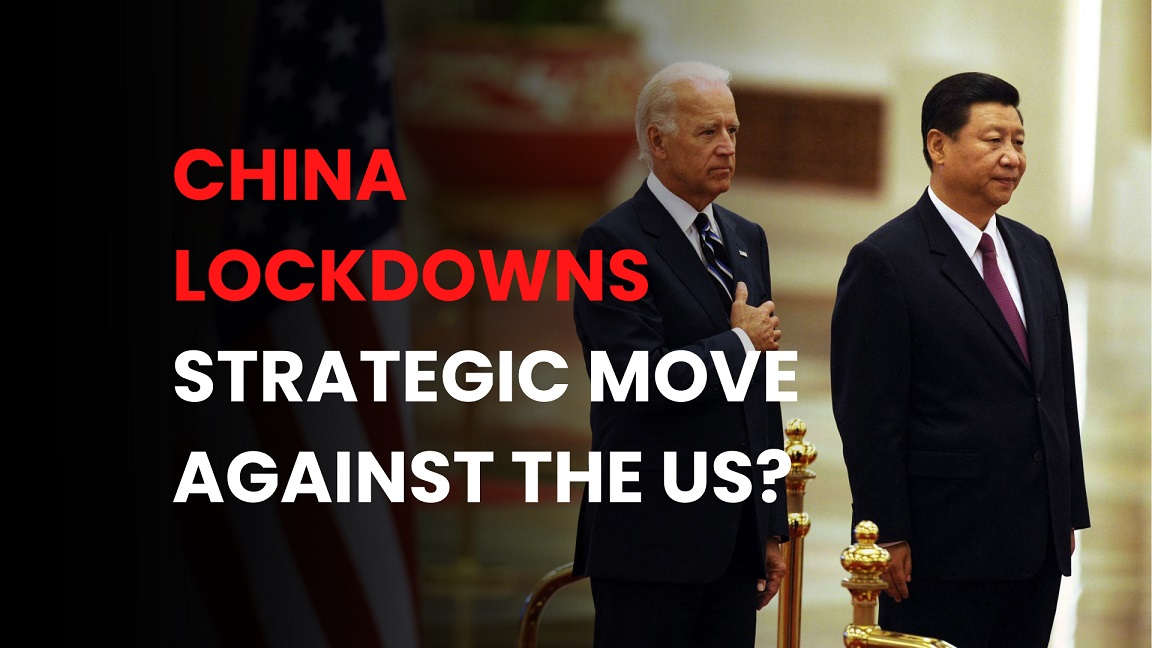As the pandemic continues to spread, many are questioning the true motives behind China’s new lockdown policies of 25 cities. Most recently Shenzhen and Shanghai, a city of 40 million people and one of the world’s most important manufacturing cities.
These lockdowns ripple across China, causing logistic shocks and the products en route to the US. markets are even further delayed.
While policy is employed as a rationale for shutting down supply chains, on the other hand, is China passively showing the US that the country is willing to use its mighty industrial power for political purposes, too.
Since China has been well known as using its economic power for political ends in the past, for example :
– Imposing tariffs on the US. imports as a result of political disagreements between China and the US.
– The Australians are enduring a steel embargo for bucking Beijing’s South China Sea territorial claims.
– South Korean tourism has taken a hit from Chinese travel prohibitions imposed because Seoul is hosting U.S. missile defenses.
– And the Lithuanians are dealing with a complete Chinese embargo because they opened a diplomatic representative office using the title ‘Taiwan’ instead of ‘Taipei’.
Today, the war in Ukraine has heightened supply chain concerns over raw materials like phosphates for fertilizer and neon gas, which is critical in microchip manufacturing. In the wider competition over access to such resources, China has the ships and the economic wherewithal to assure its needs are met.
According to VesselValue.com, today, China is the world’s largest vessel owner. The country owned all types of vessel at 171 billion dollars, while the United States ranked number 5 at 71 billion dollars
This led to the US. as one of biggest customers as well as highly dependent on China, due to their large market size and high demands for inexpensive Chinese-made products.
In order to address China’s potential to coerce and intimidate sailors, the United States needs to build better resilience into its global supply chains, increase domestic shipping and shipbuilding, and set a policy environment conducive to needed investments and innovation.
The United States must work with maritime shipping partners in friendly countries, such as Germany, Denmark, South Korea, Switzerland, France, and Taiwan to ensure access to commercial shipping and foreign markets.
This will allow the nation to become less dependent on China’s supply chain while remaining globally competitive as well as securing national security needs in times of war.







